29 Human Foods That Are Safe for Your Dog to Eat
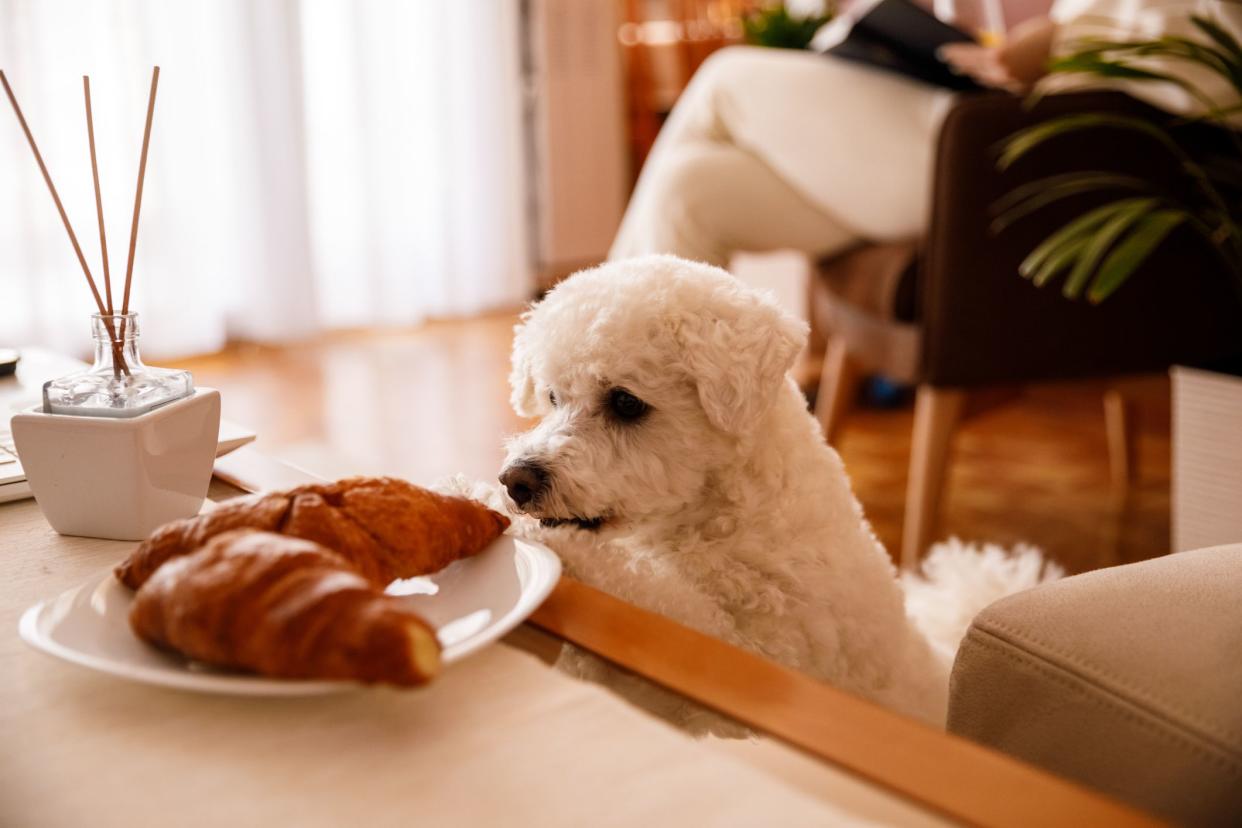
What Human Foods Can Dogs Eat?
Dogs have a cartoonish obsession with food. Even if you drop, say, a boring stick of celery, most dogs will skitter across the floor, racing to inhale the flavorless, fibrous treat. But some human foods are harmful to dogs, sending them to the vet’s office — or worse. To keep the (potentially fatal) guesswork out of the occasional human treat, we consulted expert sources to identify 29 common human foods dogs can eat.
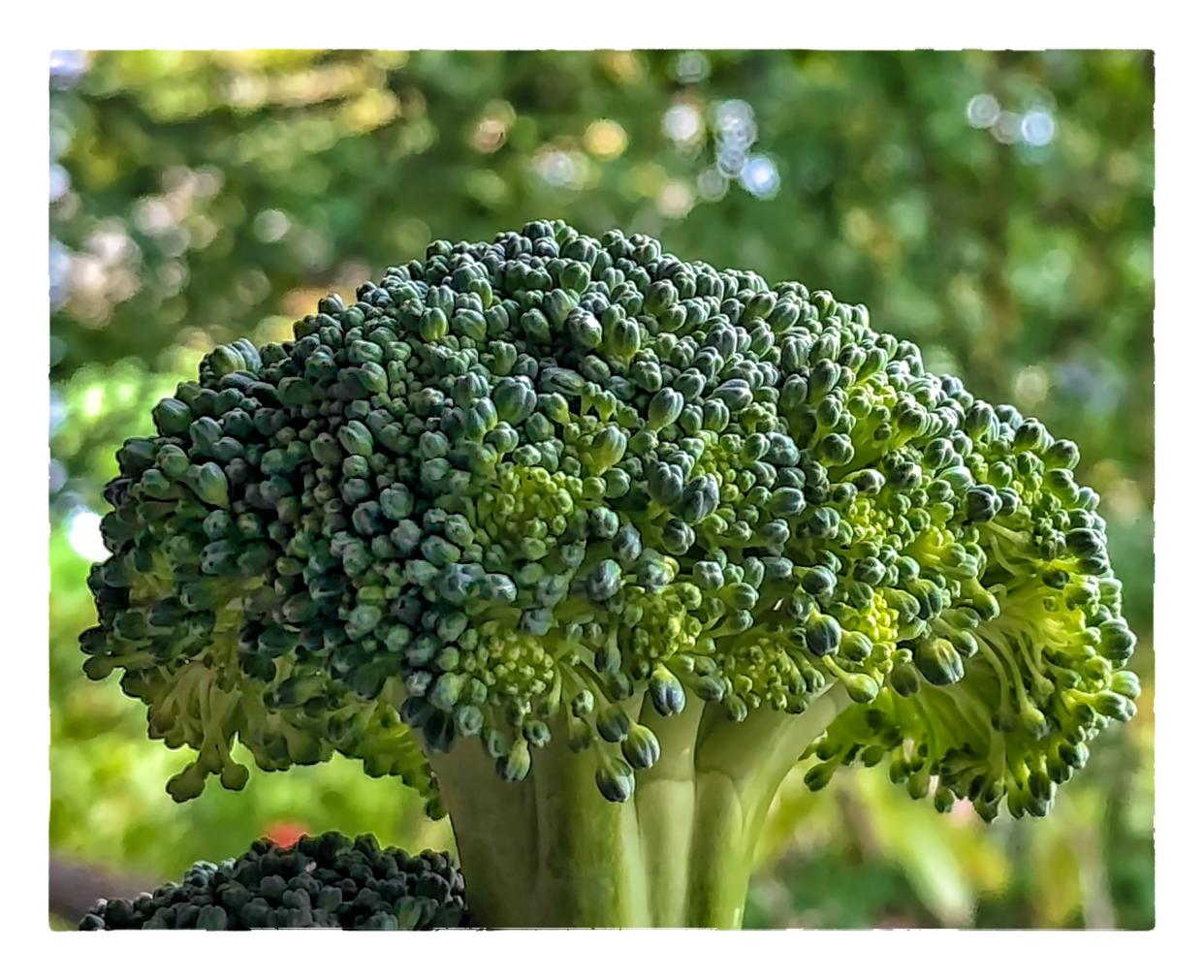
1. Broccoli
According to Hill’s Pet Nutrition, a few heads of broccoli can be a boon for your pet’s diet given the vegetable’s superfood-worthy nutrition profile. But the cruciferous veggie shouldn’t exceed more than 10% of a dog’s diet, the World Small Animal Veterinary Association explains. And you may not want to feed Fido broccoli for another reason: They can turn your pup into a fart factory.
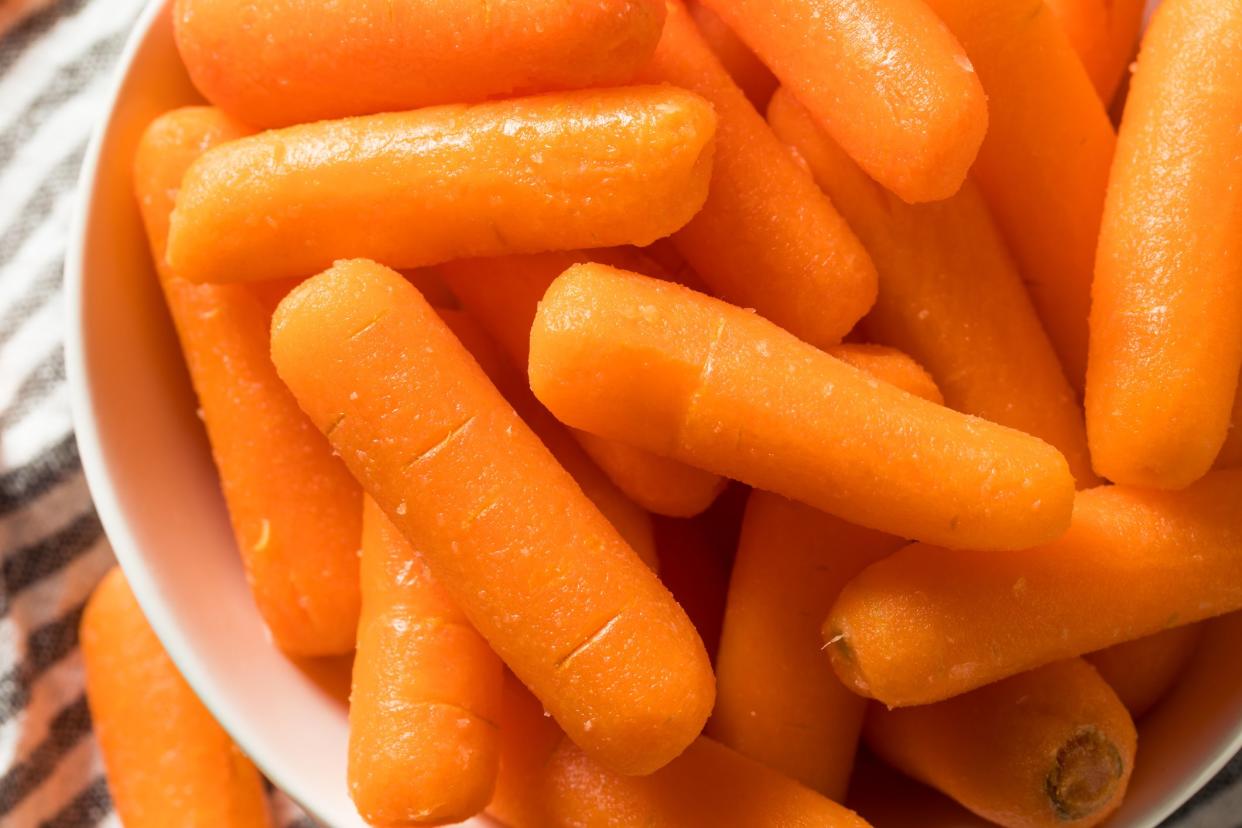
2. Carrots
Dog food producers regularly include carrots in their recipes, in part because they’re a healthy source of fiber and vitamin A. Purina even recommends using carrots as dog treats, noting that they’re a low-calorie snack that can be served cooked or raw.
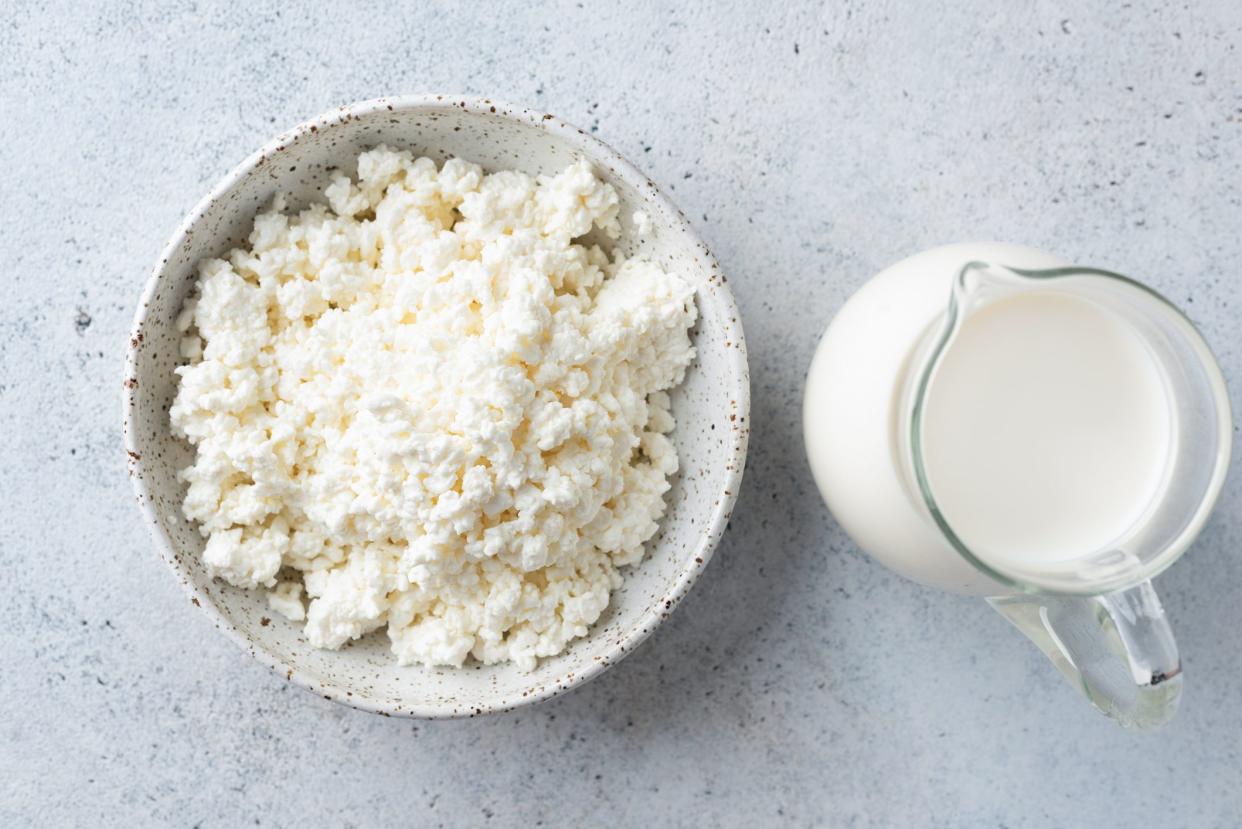
3. Cheese
Dairy products are the leading source of food intolerance among dogs, according to the American Kennel Club (AKC). But if your dog tolerates dairy products, then you can feed your pet small amounts of cheese, the organization says. Besides the possibility of lactose intolerance, the only worry is that your dog could gain weight or develop pancreatitis because of cheese’s high fat content. That’s why it’s important to only feed dogs small amounts of low-fat, low-salt cheeses like cottage cheese.
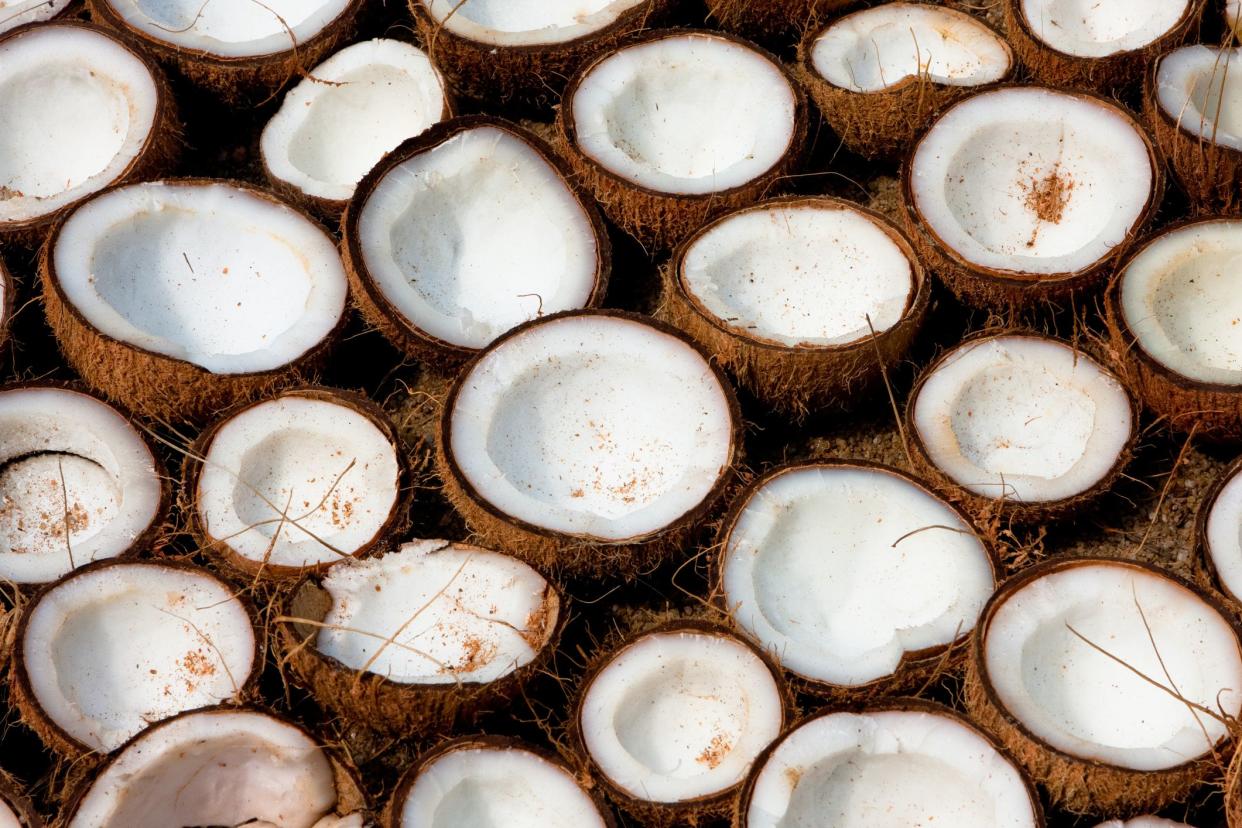
4. Coconut
Like most human foods, your dog should only eat coconut in moderation, according to The Spruce Pets. That said, most coconut products — meat, flour, sugar, and flakes — are safe in small amounts and contain nutrients like manganese. However, pet owners should avoid giving their dogs sweetened coconut (too much sugar), the fruit’s husk and shell (inedible), and coconut water (too much potassium).
For more great pet guides, please sign up for our free newsletters.
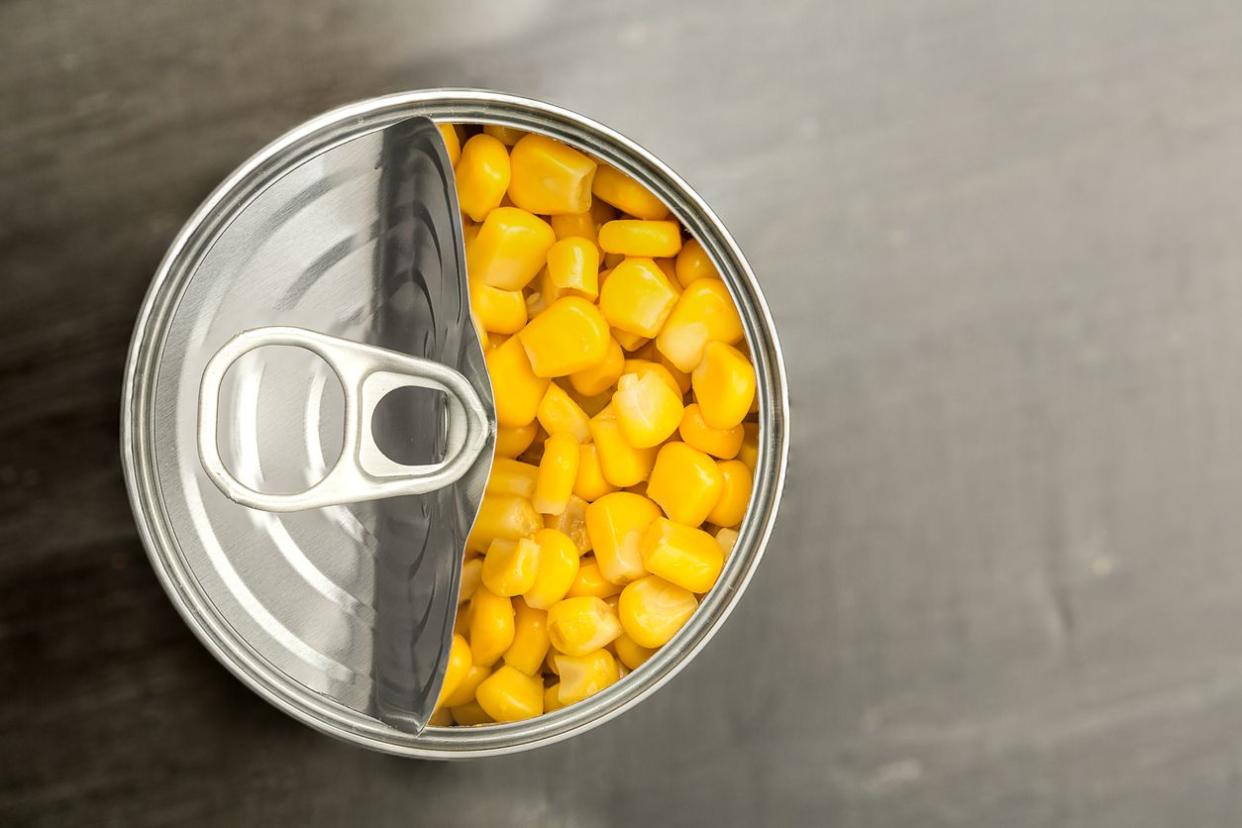
5. Corn
While corn on the cob is a choking hazard for dogs, PetMD explains that raw and cooked corn kernels are a great source of protein, antioxidants, carbohydrates, vitamins, and minerals. Even popcorn is safe for dogs, according to the AKC, which adds that the treats should always be served plain — without toppings like butter or salt.
Related: 14 Types of People Who Should Never Own a Dog
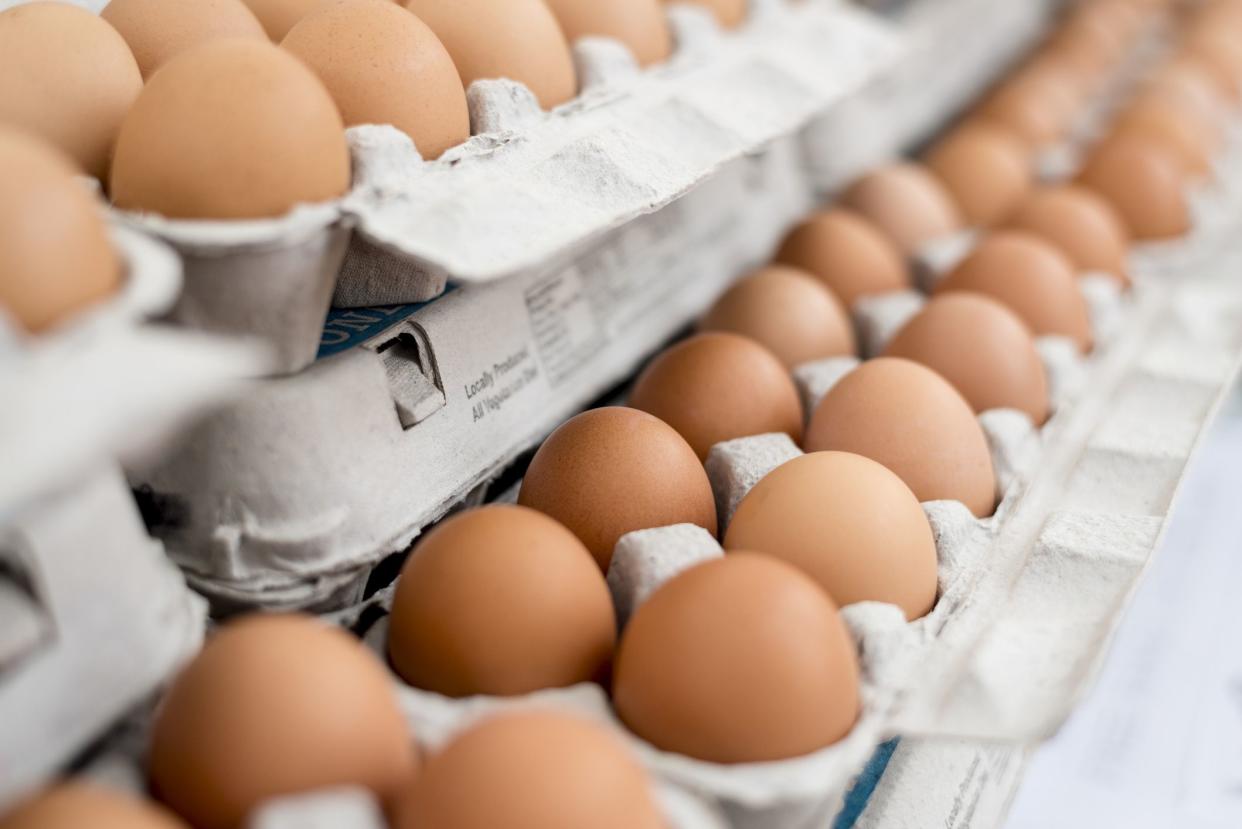
6. Eggs
Dogs can safely eat a side of scrambled eggs, according to PetMD, which adds that even the shell can be perfectly safe for canines. But just as you shouldn’t eat raw eggs — yes, even if it’s in cookie dough — dogs shouldn’t either be given the risk for salmonella.
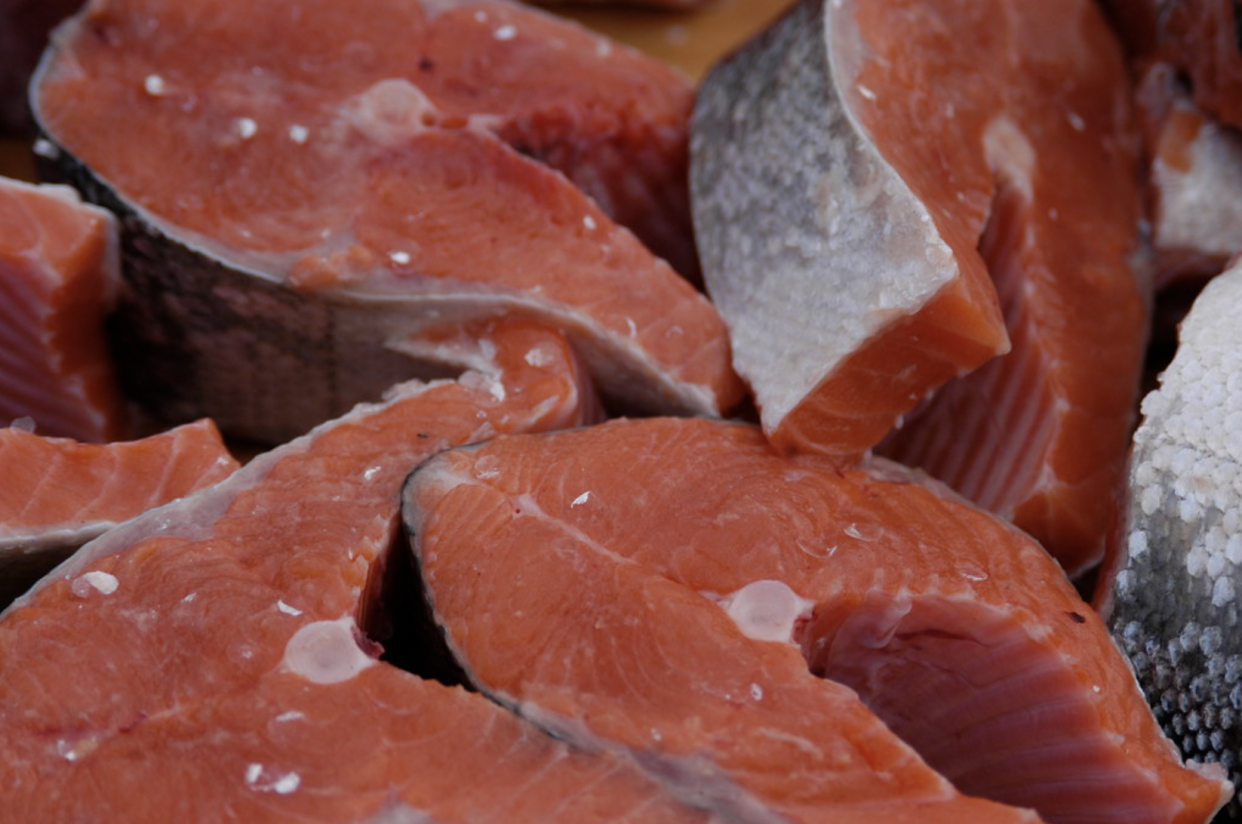
7. Fish
With its healthy omega-3 fatty acids and collagen, fish can provide dogs with health benefits, such as a healthy coat and skin. But there are a few caveats, PetMD warns. Species that are larger and more prone to containing mercury — shark, tilefish, swordfish, king mackerel, and albacore tuna — are off the table, as are farm-raised fish. And while you might enjoy the occasional sushi dinner, your dog will have to pass on the omakase. According to the American Veterinary Medical Association, all raw and undercooked animal proteins could infect your pet with harmful pathogens.
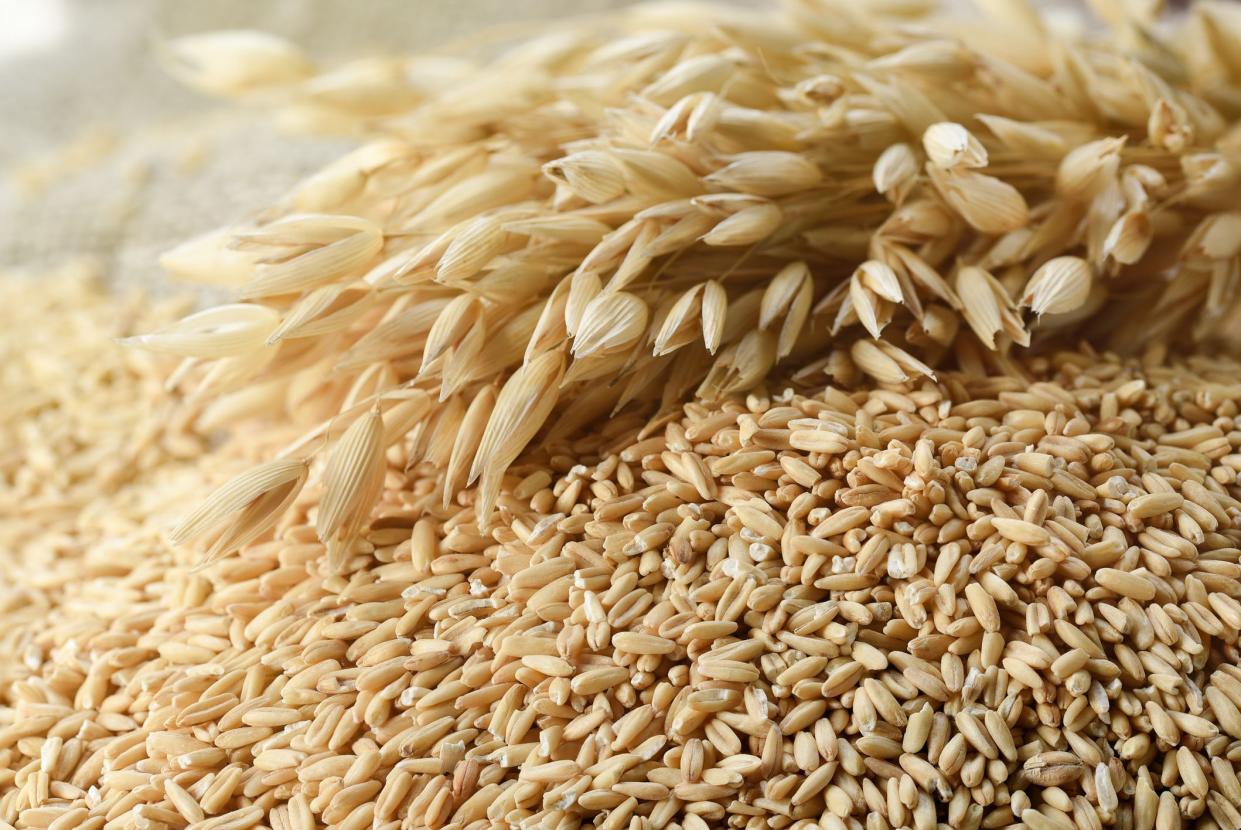
8. Grains
Despite the popularity of boutique, exotic-ingredient, or grain-free (BEG) diets, experts say that grains are generally safe for dogs. Writing for Tufts University School of Veterinary Medicine, veterinary nutritionist and professor Lisa M. Freeman says that there is no proof that grain-free diets are better. “The fact is that food allergies are very uncommon, so there’s no benefit of feeding pet foods containing exotic ingredients,” she writes. “And while grains have been accused on the internet of causing nearly every disease known to dogs, grains do not contribute to any health problems and are used in pet food as a nutritious source of protein, vitamins, and minerals.”
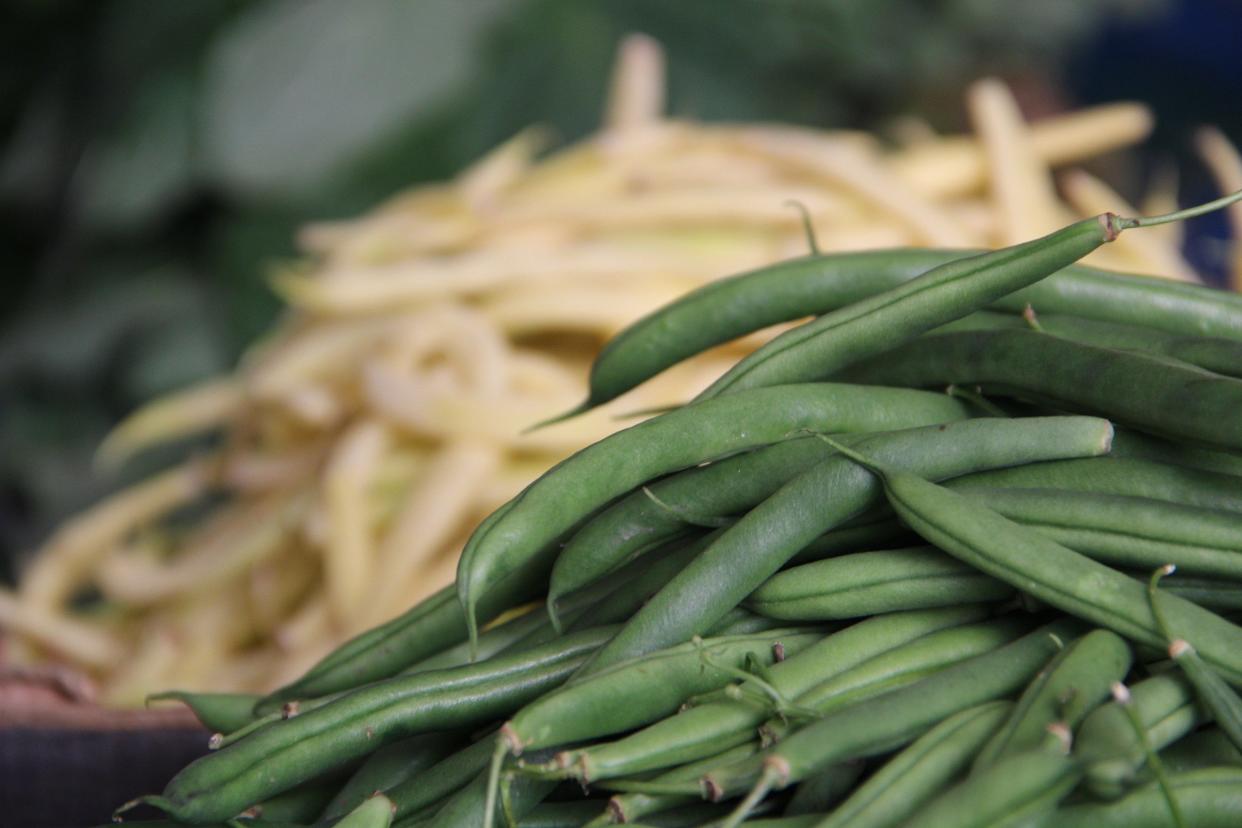
9. Green Beans
When it comes to adding green beans to your pet’s diet, anything goes, according to the AKC. “Green beans themselves are not only safe for dogs, but veterinarians also recommend them as a healthy treat,” the organization writes. The sole consideration is how you prepare your vegetables, which should always be plain and unseasoned, as ingredients like garlic powder can be toxic to dogs.
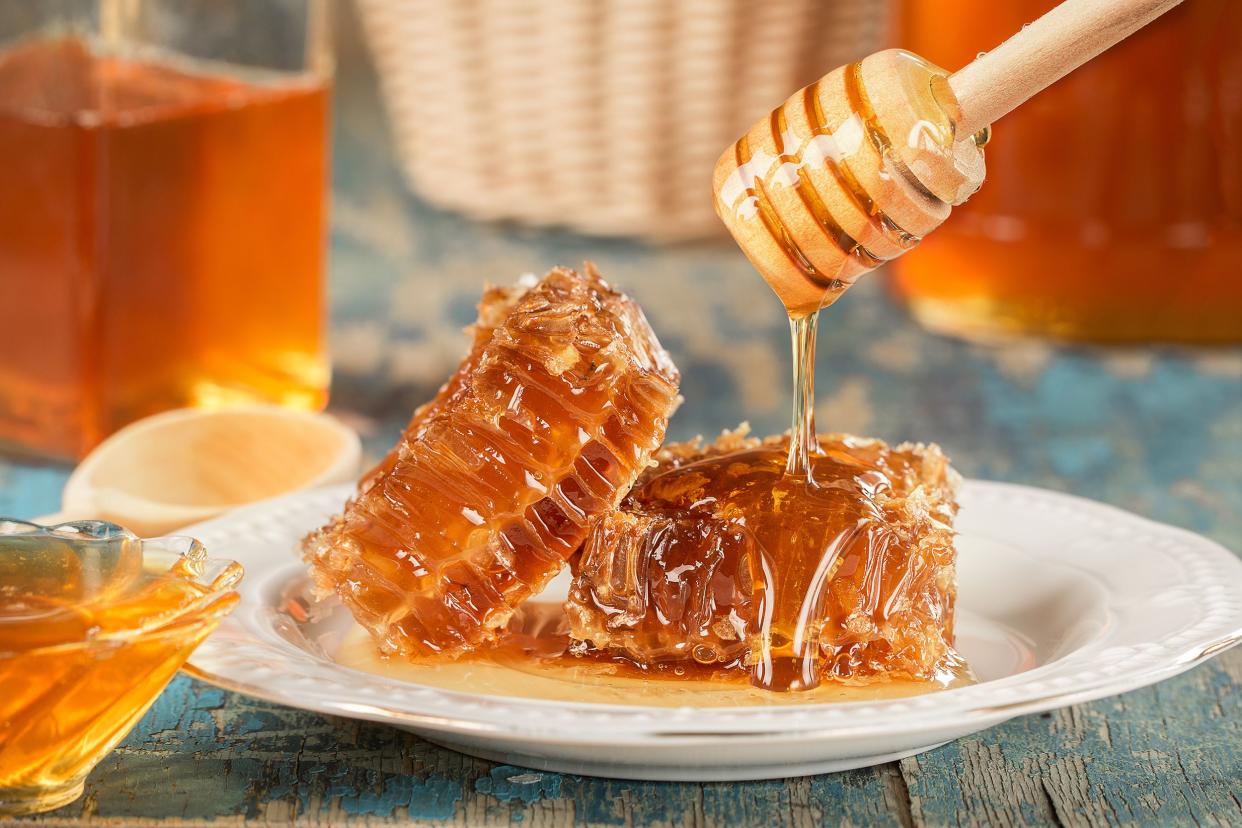
10. Honey
As we all know, diets high in sugar come with their tradeoffs — and that applies to what dogs eat, too. Unsurprisingly, obese or diabetic dogs should not eat honey, the AKC says. But if your dog is healthy — and you brush your pet’s teeth — honey is safe for dogs in small quantities.
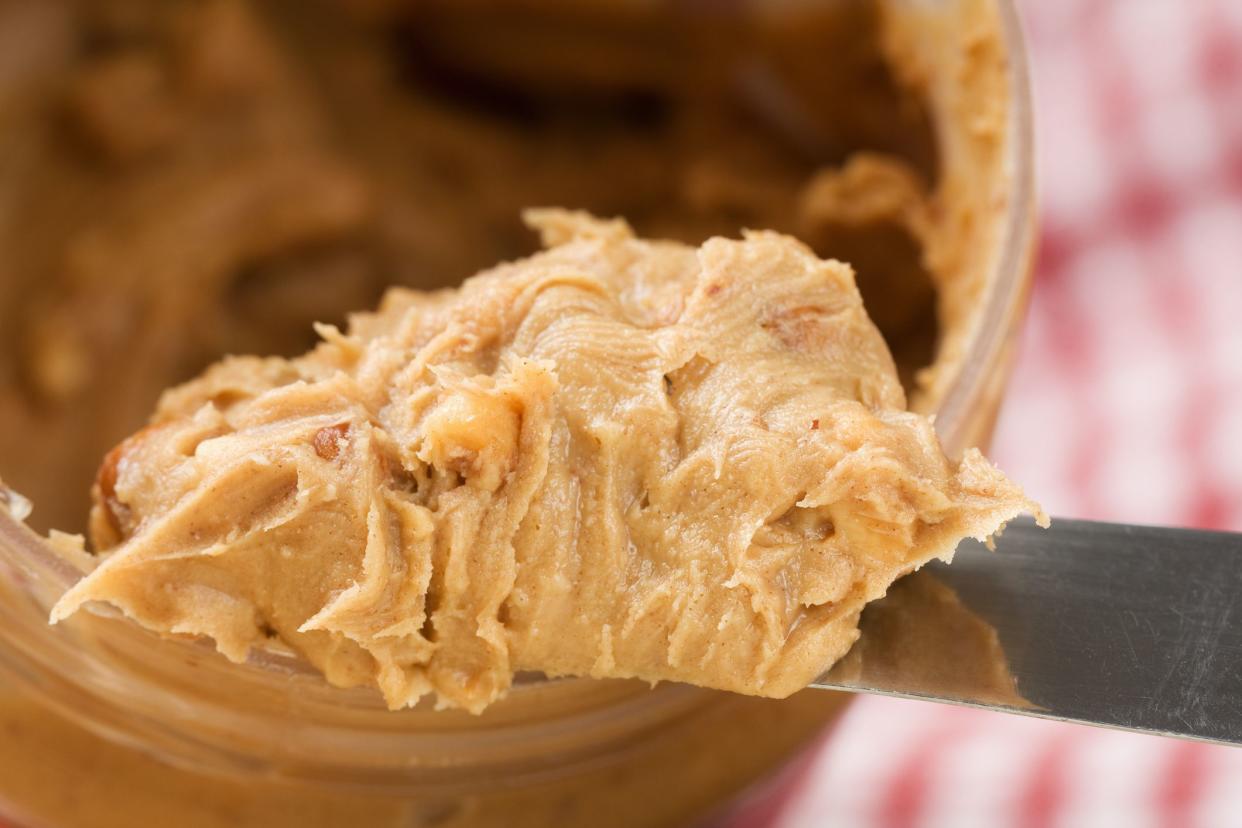
11. Peanuts and Peanut Butter
While the occasional spoonful of unsalted peanut butter or shelled, dry-roasted peanut is fine, too much of either can lead to weight gain and pancreatitis. Stick to unsalted, unsweetened, dog-specific peanuts or peanut butter formulas — and don’t go overboard. Experts also emphasize that some nuts, namely macadamia nuts, are on the list of things dogs can’t eat.
Related: 36 Popular Dog Breeds That Don't Shed
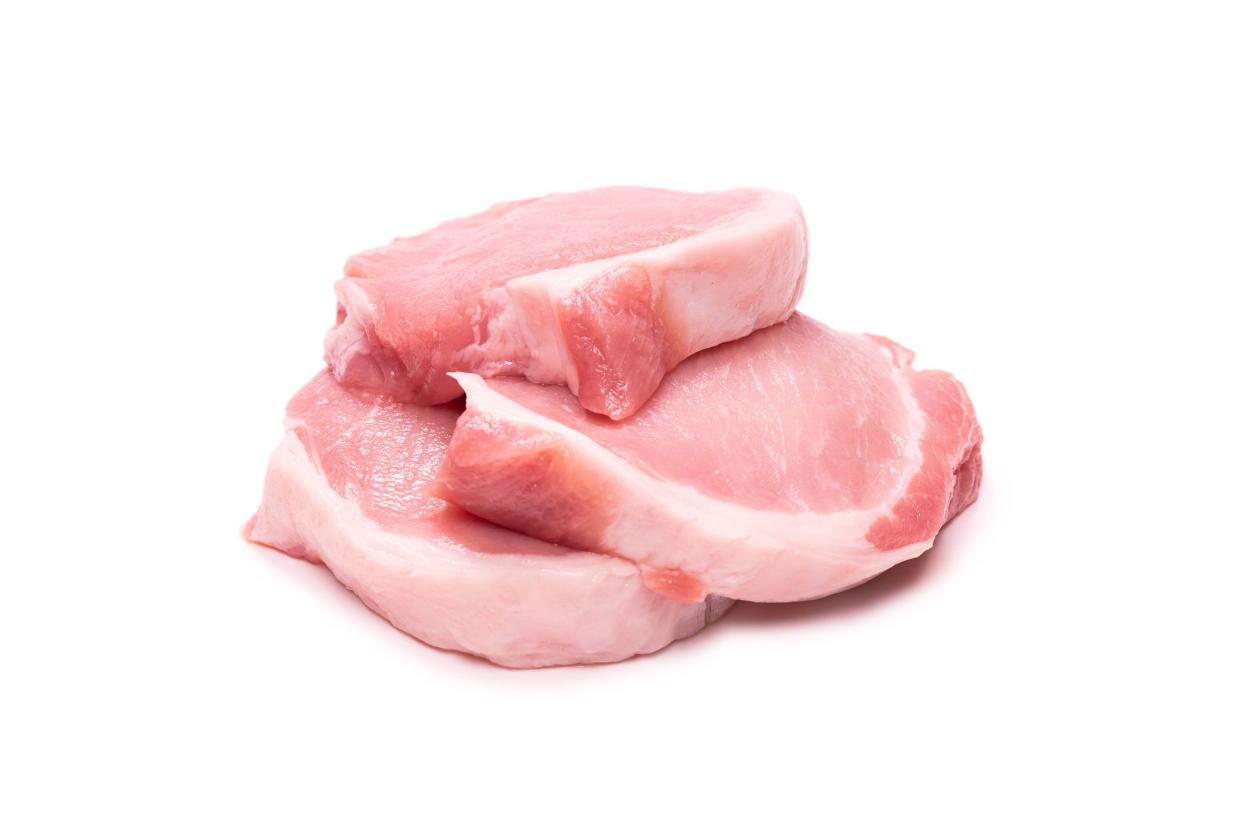
12. Pork
Provided you feed your dog plain, unseasoned, unsauced meat, you can include a small amount of pork in its diet, the AKC says. In other words, the more boring the pork, the better. That means bacon, ham, and other preserved meats are also off the menu.
Related: Does Your Dog Suffer From Allergies? Try These Foods
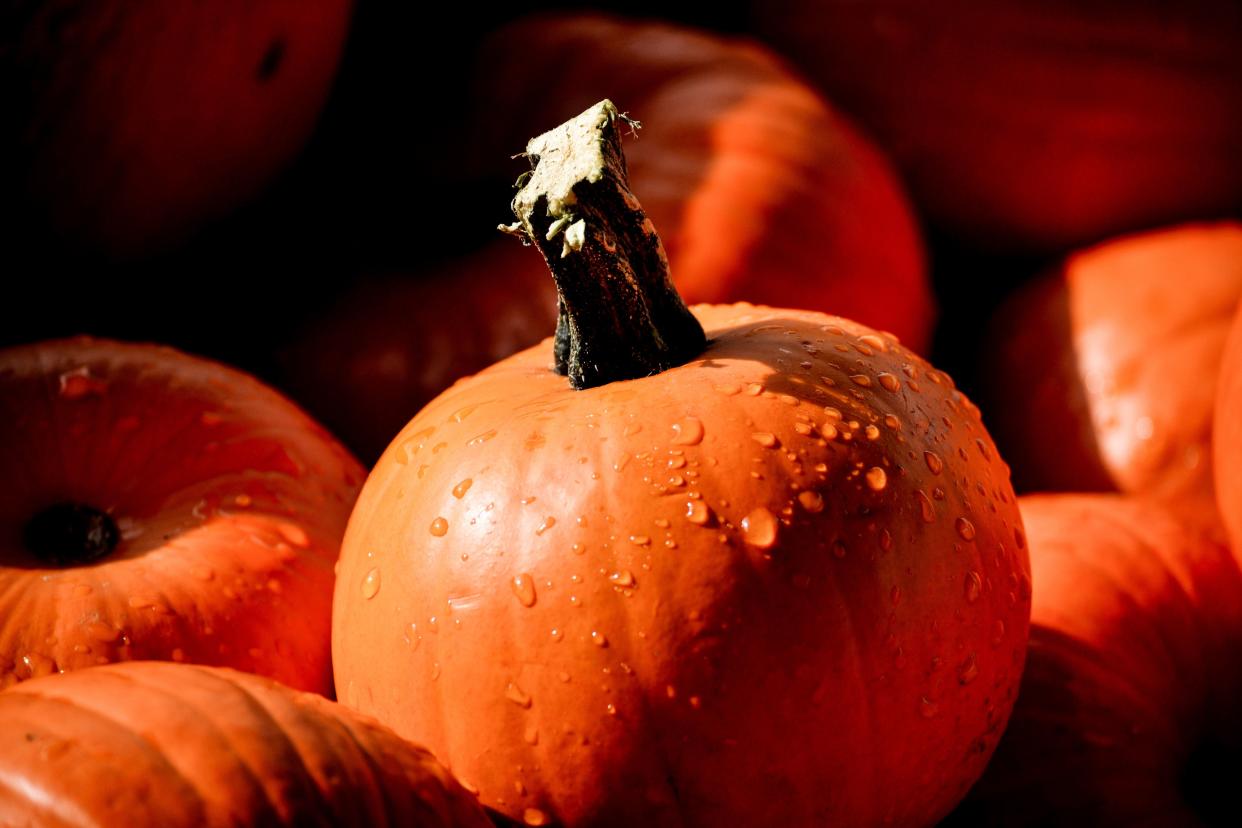
13. Pumpkin
WebMD gives dog owners the OK when it comes to adding pumpkin to your pet’s diet, calling it a “superfood” that contains micronutrients and fiber. The publication adds that it’s also useful if your dog is constipated or has runny stool, as the fruit can soothe a pet’s upset stomach.
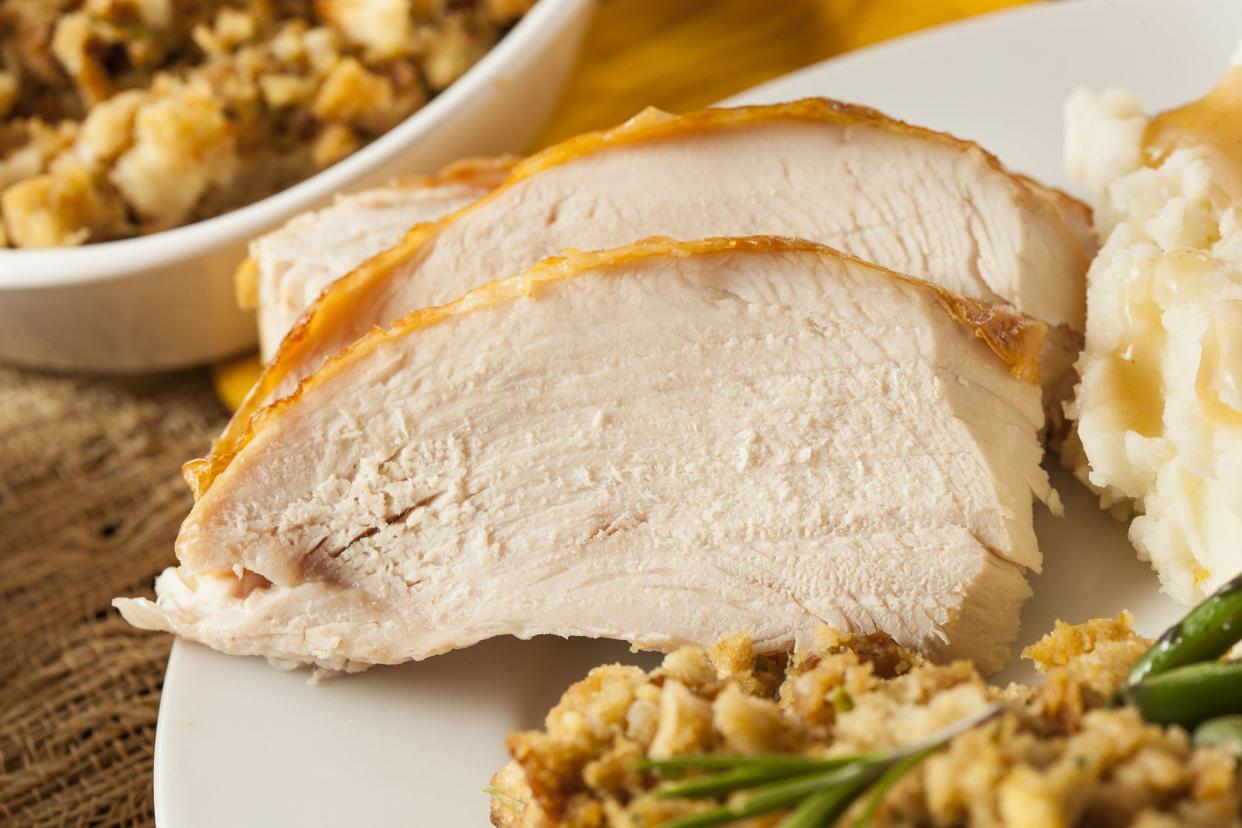
14. Turkey
Want to give your pet a piece of plain, unseasoned turkey? Go ahead, the AKC says. But make sure the meat doesn’t come with any fixings or loose bones, which can be choking hazards. Oh, and don’t let your dog overindulge, even if it is a holiday. Case in point: Thanksgiving is particularly busy for vets because of all the fatty food scraps that end up sending dogs to the emergency room for pancreatitis.
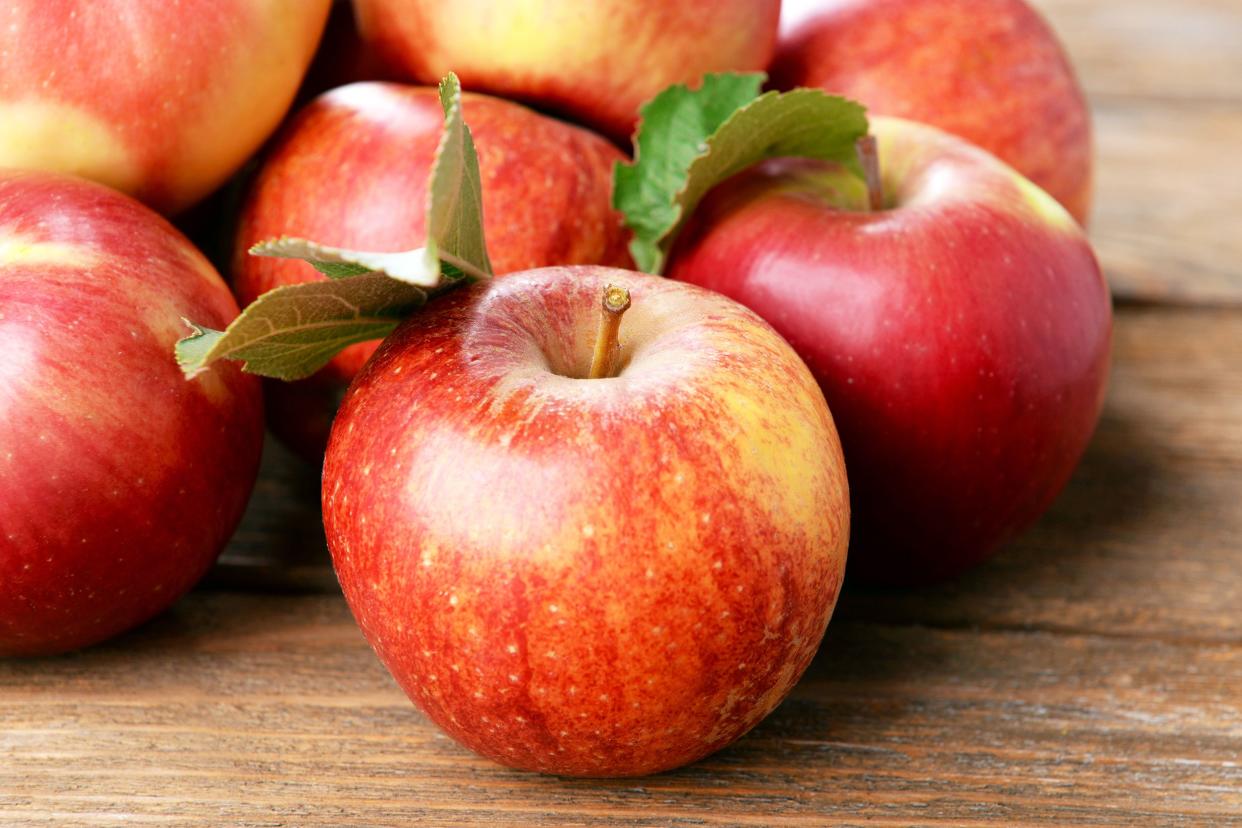
Other Human Foods Dogs Can Eat
We can’t possibly list all the human foods that pups can eat. But with the above 14 selections — along with 15 more common foods below — this roundup should provide pet owners with a guide to foods that are safe for dogs. And remember: The majority of your dog’s diet should be made up of complete, balanced, AAFCO-compliant dog food (in other words, not human food).
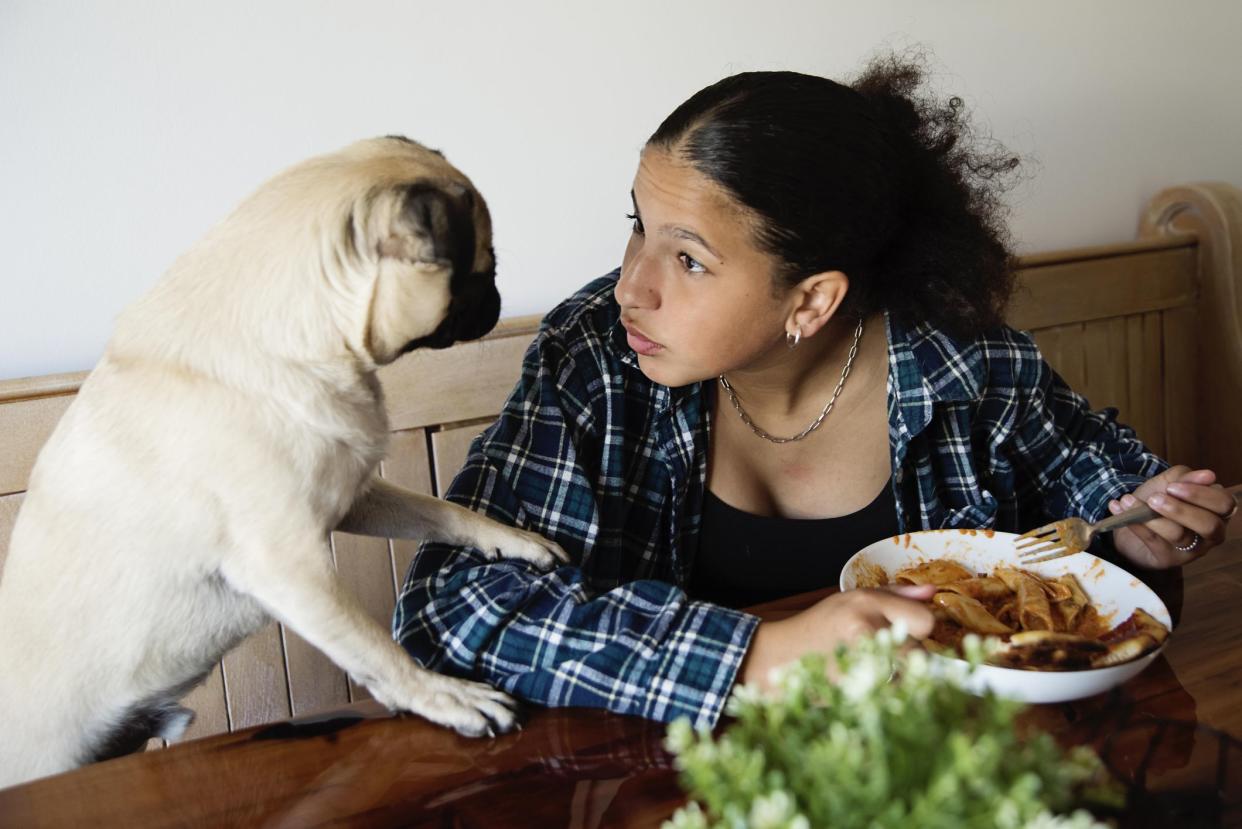
The Bottom Line
Figuring out what to feed your dog is pretty simple. Dogs should eat dog food. Humans should eat human food. And when you do give your pet a stray piece of turkey or fish, you should keep the portions small, unseasoned, and properly cooked. Otherwise, you could end up with an expensive vet bill on your hands.
This article was originally published on Cheapism

More From Cheapism
Like Cheapism's content? Be sure to follow us.
